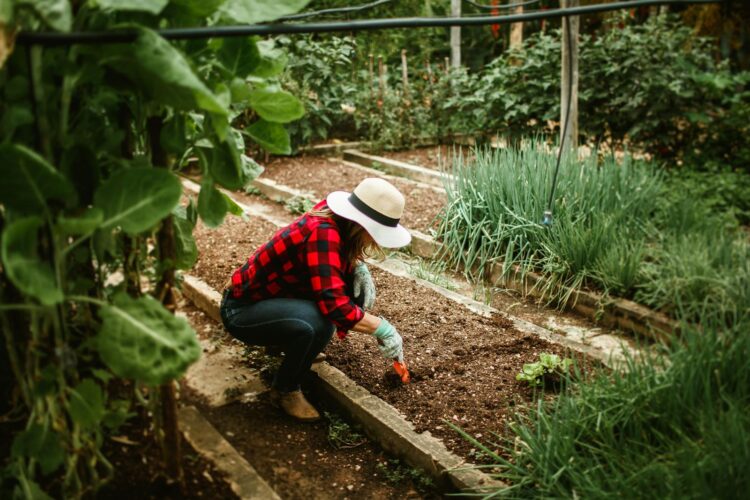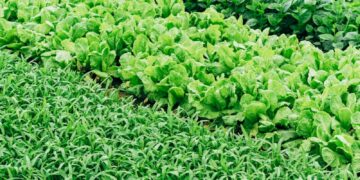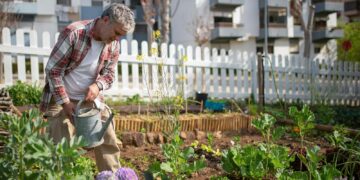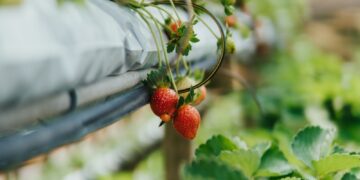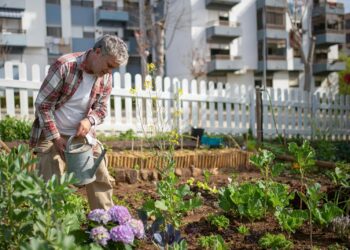Grow Your Soil, Grow Your Garden: Expert Tips for Home Growers to Boost Soil Health
When it comes to growing a successful garden, one of the most important factors to consider is the health of your soil. Healthy soil is the foundation for a thriving garden, as it provides essential nutrients and support for your plants to grow strong and produce abundant yields. In this article, we will discuss expert tips for home farmers to boost soil health and improve the overall productivity of their gardens.
Why is Soil Health Important?
Soil health is crucial for the success of your garden for several reasons. Healthy soil provides essential nutrients for plant growth, improves water retention, and supports beneficial microorganisms that help plants thrive. By focusing on improving the health of your soil, you can create a sustainable and productive garden that will yield bountiful harvests year after year.
Tip #1: Test Your Soil
Before you can improve the health of your soil, it’s important to know what you’re working with. Conducting a soil test is a simple and effective way to determine the pH level and nutrient content of your soil. This information will help you identify any deficiencies or imbalances that need to be addressed to optimize the health of your soil.
Tip #2: Add Organic Matter
One of the best ways to improve soil health is by adding organic matter. Compost, manure, and other organic materials help to improve soil structure, increase nutrient levels, and support beneficial microorganisms. By regularly adding organic matter to your soil, you can create a healthy and fertile environment for your plants to thrive.
Tip #3: Practice Crop Rotation
Crop rotation is a beneficial practice that can help improve soil health and reduce the risk of pests and diseases. By rotating your crops each season, you can prevent the depletion of specific nutrients in the soil and disrupt the life cycle of pests and diseases that may be present. This can help maintain the overall health of your soil and improve the productivity of your garden.
Tip #4: Limit Tillage
While tilling can help break up compacted soil and incorporate organic matter, excessive tillage can disrupt the natural structure of the soil and lead to erosion and nutrient loss. Limiting tillage and practicing no-till gardening can help maintain the health of your soil and preserve its structure and fertility over time.
Tip #5: Mulch Your Garden
Applying mulch to your garden is an effective way to improve soil health and reduce water evaporation, suppress weeds, and regulate soil temperature. Organic mulches such as straw, leaves, or wood chips can help add nutrients to the soil as they break down and improve overall soil structure and fertility.
Tip #6: Use Cover Crops
Cover crops are a valuable tool for improving soil health and fertility. Planting cover crops such as clover, rye, or buckwheat during the off-season can help prevent soil erosion, suppress weeds, and add organic matter to the soil. Cover crops also help fix nitrogen in the soil, reducing the need for synthetic fertilizers and improving overall soil health.
Tip #7: Avoid Chemicals
Chemical fertilizers, pesticides, and herbicides can have negative effects on soil health and beneficial microorganisms. Avoiding the use of synthetic chemicals in your garden and opting for organic and natural alternatives can help maintain the health of your soil and promote a more sustainable and environmentally friendly garden.
Conclusion
By following these expert tips for boosting soil health, home farmers can create a sustainable and productive garden that will yield bountiful harvests year after year. By testing your soil, adding organic matter, practicing crop rotation, limiting tillage, mulching your garden, using cover crops, and avoiding chemicals, you can improve the overall health and fertility of your soil and create an environment where your plants can thrive. With a focus on soil health, you can grow your soil and grow your garden to new heights of productivity and success.
So, get your hands dirty and start implementing these expert tips to boost the health of your soil and transform your garden into a thriving oasis of growth and abundance.


